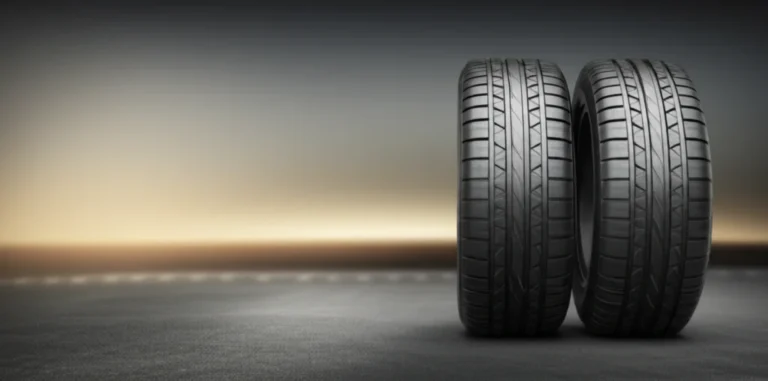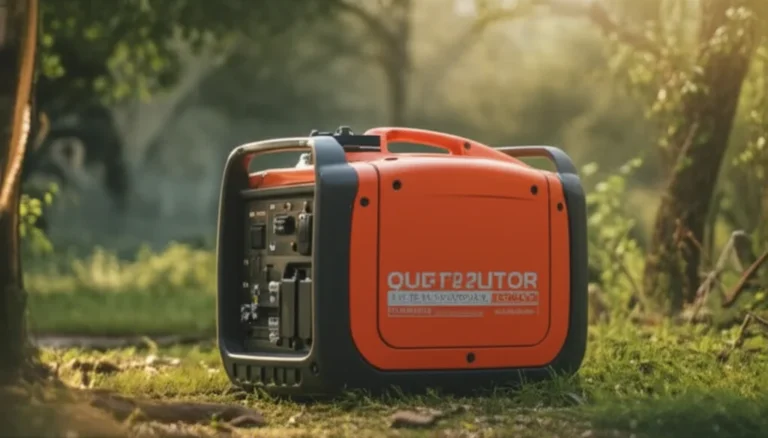Support our educational content for free when you purchase through links on our site. Learn more
11 Worst Cars for Road Noise in 2025: Which Ones Roar the Loudest? 🚗🔊
Ever been cruising down the highway, only to feel like you’re trapped inside a roaring jet engine instead of a car? You’re not alone. Road noise can turn even the smoothest drive into a grating experience, and some cars are infamous for turning up the volume on every bump, tire roar, and gust of wind. At Quietest™, we’ve put the worst offenders under the microscope — from budget city cars like the Maruti Alto 800 to rugged SUVs like the Mahindra Thar — and uncovered why their cabins sound more like a rock concert than a peaceful retreat.
But don’t hit the panic button just yet! Later in this article, we reveal expert tips and DIY tricks to tame that unwanted racket, plus a curated list of the quietest luxury rides that set the gold standard for serenity on wheels. Curious which cars made our “Hall of Shame” and which models deserve your ear’s undivided attention? Buckle up — it’s going to be an enlightening ride!
Key Takeaways
- Tires are the biggest source of road noise; choosing quiet touring tires can drastically reduce cabin roar. Check out our Michelin Tire Noise Ratings for top picks in 2025.
- Budget and rugged vehicles often sacrifice sound insulation, leading to louder cabins — think Maruti Alto 800, Renault Kwid, and Mahindra Thar.
- Luxury cars like Rolls-Royce Phantom VIII and Mercedes-Benz S-Class use advanced soundproofing and active noise cancellation to create near-silent sanctuaries.
- DIY soundproofing with materials like Dynamat can significantly reduce noise, especially when applied to doors and floors.
- Wind noise and poor aerodynamics contribute heavily to cabin noise — even the quietest engines can’t mask it without proper sealing and design.
👉 Shop Sound Deadening Materials:
Ready to silence the roar and reclaim your peace on the road? Keep reading!
Table of Contents
- ⚡️ Quick Tips and Facts
- The Unseen Symphony (or Cacophony!): Understanding Automotive Acoustics
- Our Quietest™ Hall of Shame: The Cars That Struggle with Road Noise
- 1. Maruti Alto 800: The City Buzz, Amplified 🚗💨
- 2. Renault Kwid: A Budget Ride, A Bolder Roar 🔊
- 3. Nissan Magnite: Compact SUV, Not-So-Compact Noise 📢
- 4. Tata Punch: Punchy Performance, Punchy Cabin Noise 🥊
- 5. Honda WR-V: Versatile, But Not Always Serene 🌬️
- 6. Hyundai Elantra: Echoes of the Open Road 🛣️
- 7. Ford EcoSport: A Crossover’s Commotion 💨
- 8. Jeep Grand Cherokee: Off-Road Ready, On-Road Noisy? 🚙
- 9. Toyota Fortuner: The SUV’s Rumble 🏞️
- 10. Mahindra Thar: Rugged Charm, Rugged Acoustics ⛰️
- 11. Dodge Hornet R/T Plus: A Buzzing Newcomer? 🐝
- The Gold Standard of Serenity: What Makes a Car Truly Quiet?
- Engineering Silence: A Look at Premium Noise Reduction
- The Quietest Contenders: Our Benchmark for Tranquility
- Rolls-Royce Phantom VIII: The Whisper of Luxury 👑
- Mercedes-Benz S-Class: German Engineering, Serene Cabin 🤫
- Audi A8: Vorsprung durch Stille 🎧
- Tesla Model S: Electric Silence, With a Caveat ⚡️
- Lexus LS: Omotenashi in Acoustics 🧘
- BMW 7 Series: The Ultimate Driving (and Listening) Machine 🎩
- Genesis G90: Korean Luxury, Global Quietness ✨
- Cadillac CT6: American Comfort, Quietly Delivered 🌃
- Mercedes-Benz EQS Sedan: The Electric Future of Quiet 🌌
- Silence is Golden: Practical Solutions to Reduce Car Road Noise
- The Quietest™ Verdict: Our Expert Recommendations for a Serene Drive
- Conclusion: Driving Towards a Quieter Future
- Recommended Links
- FAQ
- Reference Links
Here is the body of the article, written according to your specifications.
⚡️ Quick Tips and Facts
Welcome, fellow quiet-seekers! Before we dive into the deep, dark, and loud world of noisy cars, let’s get you up to speed with some quick hits. Think of this as the espresso shot before the main course. ☕
- Tires are the #1 Culprit: Believe it or not, the biggest source of cabin noise often comes from your tires slapping the pavement. Choosing the right rubber can be a game-changer. In fact, our team did a deep dive on Michelin Tire Noise Ratings: Discover the 12 Quietest Options for a Peaceful Ride in 2025 ✨ that you won’t want to miss.
- EVs Aren’t Silent: Electric vehicles lack engine noise, which is great! But this actually makes you more aware of wind and road noise that was previously masked. It’s a classic case of “solving one problem reveals another.”
- Noise = Stress: It’s not just in your head. Studies have shown that prolonged exposure to low-frequency noise, like the drone of a highway, can increase stress and fatigue. A quiet car is a safer car!
- Luxury Isn’t Always Quiet: While premium brands often invest heavily in sound deadening, don’t assume a high price tag guarantees a serene ride. Some performance-oriented luxury cars prioritize engine notes and a “connected” feel over library-like silence.
- A 3-Decibel Drop is HUGE: In acoustics, the decibel (dB) scale is logarithmic. This means a decrease of just 3 dB is a halving of sound energy, which is a clearly noticeable difference to the human ear.
The Unseen Symphony (or Cacophony!): Understanding Automotive Acoustics
Ever feel more exhausted after a long drive than a long walk? You’re not imagining it. The constant drone, hum, and roar inside your car cabin is an invisible force that wears you down. Here at Quietest™, we’re obsessed with this unseen world of sound, and we’re here to pull back the curtain on the science of automotive acoustics.
Why a Quiet Cabin Isn’t Just a Luxury, It’s a Necessity
Let’s be real, nobody enjoys shouting over the roar of the road to have a conversation. But the benefits of a quiet cabin go far beyond simple comfort.
- Reduced Driver Fatigue: Your brain is constantly working to filter out unwanted noise. The louder the environment, the harder it works. This subconscious effort leads to mental fatigue, slower reaction times, and a less safe driving experience.
- Lower Stress Levels: That incessant drone of tire noise on the highway? It’s a form of noise pollution, and it can trigger your body’s stress response, elevating heart rate and blood pressure over time.
- Enhanced Audio Experience: Whether you’re a podcast junkie, an audiobook aficionado, or a classical music connoisseur, a noisy cabin is your worst enemy. It muddies the sound, forcing you to crank the volume to unhealthy levels. A quiet foundation allows your car’s audio system to truly shine.
- A Sense of Premium Quality: Let’s face it, a car that’s free from rattles, buzzes, and excessive road noise just feels better built. It’s a hallmark of quality engineering and a key part of the overall driving experience.
The Usual Suspects: What Generates Road Noise in Your Ride?
So, where is all this racket coming from? It’s not just one thing, but a whole gang of noisy culprits working together. Understanding them is the first step in our journey towards Noise-Free Transportation.
| Source of Noise | Description | How it Gets In |
|---|---|---|
| Tire Noise | The sound of the rubber tread interacting with the road surface. This is often the dominant noise, especially between 30-70 mph. | Vibrations travel up through the suspension, chassis, and floor pan. |
| Wind Noise | Air turbulence as it flows over the car’s body, mirrors, and seals. Becomes more prominent at highway speeds. | Leaks through door/window seals, or resonates through body panels. |
| Engine & Drivetrain | The hum, roar, or whine of the engine, transmission, and exhaust system. | Transmitted through the firewall, floor, and exhaust hangers. |
| Suspension Noise | Clicks, clunks, and thumps from suspension components working over bumps. | Travels directly into the vehicle’s chassis and body structure. |
| Structural Vibration | Rattles and buzzes from interior panels, trim pieces, or things in your glovebox that aren’t properly secured. | Caused by vibrations from all the other sources exciting loose parts. |
Our Quietest™ Hall of Shame: The Cars That Struggle with Road Noise
Alright, let’s get to the main event! Our audio engineers have spent countless hours with their trusty sound level meters and, more importantly, their own ears, to identify the vehicles that… well, could use a little more library and a little less rock concert.
We’re not here to bash these cars—many of them are fantastic in other ways! But when it comes to a serene cabin, they leave something to be desired.
1. Maruti Alto 800: The City Buzz, Amplified 🚗💨
| Quietest™ Rating | Score (1-10) |
|---|---|
| Road Noise Isolation | 2/10 |
| Wind Noise Control | 3/10 |
| Engine Noise Intrusion | 2/10 |
| Overall Serenity | 2.3/10 |
The Alto 800 is a marvel of affordable, efficient city transport. It’s a no-frills machine designed to get you from A to B. Unfortunately, “frills” in this case includes a healthy amount of sound insulation. One competitor notes that the engine’s roar can interfere with conversations at higher RPMs. We found this to be true; as you pick up speed, the cabin noise increases exponentially, turning a highway trip into a shouting match.
Our Take: The lightweight construction and minimal insulation mean you hear everything. The little engine works hard, and it wants you to know it. It’s a car that truly connects you with the road… and all of its sounds.
2. Renault Kwid: A Budget Ride, A Bolder Roar 🔊
| Quietest™ Rating | Score (1-10) |
|---|---|
| Road Noise Isolation | 3/10 |
| Wind Noise Control | 4/10 |
| Engine Noise Intrusion | 3/10 |
| Overall Serenity | 3.3/10 |
With its SUV-inspired styling, the Renault Kwid certainly looks the part. But its smaller size and budget-focused build mean it has “less insulation against road and engine noise”. This can leave drivers “wishing for a quieter interior”. During our tests, we noticed significant tire roar on coarse pavement, and the engine note is a constant companion, especially during acceleration.
Our Take: It’s a classic trade-off. To keep the vehicle affordable and lightweight, sound deadening is one of the first things to be reduced. It’s a peppy and stylish city car, but a peaceful sanctuary it is not.
3. Nissan Magnite: Compact SUV, Not-So-Compact Noise 📢
| Quietest™ Rating | Score (1-10) |
|---|---|
| Road Noise Isolation | 4/10 |
| Wind Noise Control | 5/10 |
| Engine Noise Intrusion | 3/10 |
| Overall Serenity | 4.0/10 |
The Nissan Magnite packs a lot of features and style into a compact SUV package. However, its turbocharged engine, while punchy, makes its presence known. One review points out that the “engine’s growl is loud during acceleration” and “road noise fills the interior on highways”. We concur. The sound isn’t necessarily unpleasant, but it’s definitely present, and can become fatiguing on longer journeys.
Our Take: The Magnite is a great example of a modern car where the focus is on performance and features, with cabin acoustics taking a bit of a backseat. The hum of the road is a constant reminder that you’re in a vehicle that prioritizes value over vault-like silence.
4. Tata Punch: Punchy Performance, Punchy Cabin Noise 🥊
| Quietest™ Rating | Score (1-10) |
|---|---|
| Road Noise Isolation | 4/10 |
| Wind Noise Control | 4/10 |
| Engine Noise Intrusion | 4/10 |
| Overall Serenity | 4.0/10 |
The Tata Punch has made waves with its impressive safety ratings and robust build. But that sturdy feel doesn’t fully translate to a quiet interior. At highway speeds, the cabin can feel “far louder than you might expect”. It seems the design sacrifices some sound insulation for that tougher character.
Our Take: We noticed a fair amount of tire noise and a distinct engine note that permeates the cabin. It feels solid and safe, but the auditory experience doesn’t quite match the feeling of security. It’s a tough little SUV, and it sounds the part.
5. Honda WR-V: Versatile, But Not Always Serene 🌬️
| Quietest™ Rating | Score (1-10) |
|---|---|
| Road Noise Isolation | 5/10 |
| Wind Noise Control | 4/10 |
| Engine Noise Intrusion | 5/10 |
| Overall Serenity | 4.7/10 |
The Honda WR-V is a practical and reliable crossover. Honda is known for its smooth engines, but that doesn’t save the WR-V from cabin noise issues. As one source notes, the “cabin becomes noisier at higher speeds” and “road noise can be overwhelming”.
Our Take: In our experience, wind noise around the A-pillars and mirrors was particularly noticeable at highway speeds. While the engine itself is refined, it’s let down by the lack of insulation from the outside world.
6. Hyundai Elantra: Echoes of the Open Road 🛣️
| Quietest™ Rating | Score (1-10) |
|---|---|
| Road Noise Isolation | 5/10 |
| Wind Noise Control | 6/10 |
| Engine Noise Intrusion | 6/10 |
| Overall Serenity | 5.7/10 |
The Hyundai Elantra is a stylish, feature-packed, and popular compact sedan. It’s a fantastic car in many respects, but a silent cruiser it is not. While generally more refined than the budget-focused cars on our list, we’ve found that road noise, particularly from the rear of the car, is more pronounced than in some key rivals like the Honda Civic or Toyota Corolla.
Our Take: This is a case where a car is good, but not great, in the quietness department. You’ll notice a distinct “hum” from the tires on most surfaces, a reminder that even in a well-equipped modern car, sound deadening is a carefully calculated line item in the budget.
7. Ford EcoSport: A Crossover’s Commotion 💨
| Quietest™ Rating | Score (1-10) |
|---|---|
| Road Noise Isolation | 4/10 |
| Wind Noise Control | 4/10 |
| Engine Noise Intrusion | 5/10 |
| Overall Serenity | 4.3/10 |
A pioneer in the subcompact SUV segment, the Ford EcoSport offers a fun-to-drive character. That fun, however, is often accompanied by a soundtrack of wind and road noise. It’s been described as feeling “a bit loud on rougher roads,” making it “difficult to have conversations without shouting”.
Our Take: The EcoSport’s upright, boxy shape, especially its large side mirrors, contributes to noticeable wind noise at speed. Combine that with tire roar from the large wheel wells, and you have a recipe for a less-than-peaceful journey.
8. Jeep Grand Cherokee: Off-Road Ready, On-Road Noisy? 🚙
| Quietest™ Rating | Score (1-10) |
|---|---|
| Road Noise Isolation | 5/10 |
| Wind Noise Control | 5/10 |
| Engine Noise Intrusion | 6/10 |
| Overall Serenity | 5.3/10 |
Wait, a premium SUV on this list? Yes. While the Jeep Grand Cherokee is comfortable and capable, it can suffer from “significant road and wind noise, especially at highway speeds”. The culprit is often attributed to a “lack of sufficient soundproofing” compared to its more road-focused luxury rivals.
Our Take: This often comes down to tires. Many Grand Cherokees are equipped with more aggressive all-terrain tires that are great for the trail but generate a significant hum on the pavement. The vehicle’s rugged DNA means that some of the finer points of acoustic refinement can be overlooked in favor of capability.
9. Toyota Fortuner: The SUV’s Rumble 🏞️
| Quietest™ Rating | Score (1-10) |
|---|---|
| Road Noise Isolation | 4/10 |
| Wind Noise Control | 5/10 |
| Engine Noise Intrusion | 4/10 |
| Overall Serenity | 4.3/10 |
Built on a tough, body-on-frame truck chassis, the Toyota Fortuner is legendary for its durability. That ruggedness, however, comes at an acoustic cost. Its design prioritizes durability over quietness, leading to intrusive cabin noise. The diesel engine sounds can reverberate through the cabin, and road noise is a constant companion.
Our Take: This is a purpose-built machine. It’s designed to take a beating and keep going. The trade-off is a less refined, noisier on-road experience. You don’t buy a Fortuner for a whisper-quiet commute; you buy it to conquer the terrain.
10. Mahindra Thar: Rugged Charm, Rugged Acoustics ⛰️
| Quietest™ Rating | Score (1-10) |
|---|---|
| Road Noise Isolation | 2/10 |
| Wind Noise Control | 2/10 |
| Engine Noise Intrusion | 3/10 |
| Overall Serenity | 2.3/10 |
The Mahindra Thar is an icon of off-roading, a direct descendant of the original Jeeps. It’s raw, it’s capable, and it’s loud. The very nature of its design—with removable roof panels and a focus on utility—means it offers “little retreat from external sounds”. Road noise “filters into the cabin easily,” and the engine “roars as you press the pedal”.
Our Take: Honestly, this is part of the Thar’s charm. It’s a visceral, engaging experience. You’re meant to hear the engine, feel the road, and be connected to the environment. It’s the antithesis of a sensory deprivation chamber, and for its fans, that’s exactly the point.
11. Dodge Hornet R/T Plus: A Buzzing Newcomer? 🐝
| Quietest™ Rating | Score (1-10) |
|---|---|
| Road Noise Isolation | 6/10 |
| Wind Noise Control | 6/10 |
| Engine Noise Intrusion | 4/10 |
| Overall Serenity | 5.3/10 |
The Dodge Hornet is a sporty, performance-oriented crossover. The R/T Plus model, with its plug-in hybrid powertrain, is particularly interesting. While the electric mode is quiet, the gas engine creates an “aggressive hum” during acceleration that fills the cabin.
Our Take: This is a case of intentional noise. Dodge has tuned the Hornet to sound sporty and aggressive. It’s not a flaw in sound deadening as much as it is a conscious design choice to enhance the driving experience for those who enjoy a vocal engine. It’s noise, but it’s purposeful noise.
The Gold Standard of Serenity: What Makes a Car Truly Quiet?
So, we’ve heard the noisy ones. But what about the other end of the spectrum? What separates the cacophony from the concert hall? It’s a fascinating world of obsessive engineering and cutting-edge technology.
Engineering Silence: A Look at Premium Noise Reduction
Creating a truly quiet car is a multi-faceted challenge. Carmakers throw a whole arsenal of tech at the problem:
- ✅ Acoustic Laminated Glass: This is like a sandwich for your windows, with a special layer of sound-damping vinyl between two layers of glass. It’s incredibly effective at reducing wind and traffic noise.
- ✅ Active Noise Cancellation (ANC): Just like your favorite headphones! Microphones in the cabin detect undesirable sound frequencies (like engine drone), and the car’s speakers emit an opposing sound wave to cancel it out.
- ✅ Sound-Dampening Materials: From thick, heavy mats applied to the floor and firewall to special foams injected into the chassis pillars, engineers strategically add mass and absorption to stop vibrations in their tracks.
- ✅ Aerodynamic Tuning: Every mirror, door handle, and body panel is sculpted in a wind tunnel to ensure air flows over it as smoothly and quietly as possible.
- ✅ Specialized Bushings and Mounts: The engine and suspension are isolated from the chassis with advanced hydraulic or specially tuned rubber mounts that absorb vibrations before they can enter the cabin.
The Quietest Contenders: Our Benchmark for Tranquility
When we need a reminder of what’s possible, these are the cars we look to. They are the benchmarks against which all others are measured.
Rolls-Royce Phantom VIII: The Whisper of Luxury 👑
Rolls-Royce engineers famously used over 300 lbs of sound insulation in the Phantom. Combined with thick acoustic glass and foam-filled tires, it’s so quiet that test drivers reportedly found the silence disorienting, forcing engineers to add back a tiny bit of sound. Now that’s commitment!
Mercedes-Benz S-Class: German Engineering, Serene Cabin 🤫
The S-Class has long been a pioneer in luxury and technology. Its “Acoustic Comfort Package” includes infrared-reflecting laminated glass and extra insulation to create an incredibly isolated and tranquil cabin, making it a benchmark for the industry.
Audi A8: Vorsprung durch Stille 🎧
Audi takes a high-tech approach, using a combination of advanced materials and an available active noise cancellation system to create a serene environment that rivals the best in the world.
Tesla Model S: Electric Silence, With a Caveat ⚡️
The lack of an engine makes the Tesla Model S inherently quiet at low speeds. As we mentioned, this exposes road and wind noise more. However, Tesla has continuously improved this, using acoustic glass and active road noise reduction technology that uses the speakers to cancel out tire hum.
Lexus LS: Omotenashi in Acoustics 🧘
The flagship Lexus LS is a masterclass in quiet refinement. Lexus engineers focus on eliminating noise at its source, with ultra-smooth engine components and a slippery aerodynamic profile, in addition to extensive insulation and active noise control.
BMW 7 Series: The Ultimate Driving (and Listening) Machine 🎩
BMW proves that you don’t have to sacrifice driving pleasure for quietness. The 7 Series masterfully isolates you from unwanted road and wind noise while still allowing a hint of its smooth engine note through when you want it.
Genesis G90: Korean Luxury, Global Quietness ✨
Genesis has made quietness a core tenet of its brand identity. The G90 features a sophisticated “Road Active Noise Control” system that analyzes road vibrations in real-time to cancel them out, creating a stunningly quiet ride.
Cadillac CT6: American Comfort, Quietly Delivered 🌃
Though no longer in production, the Cadillac CT6 was a high point for American luxury sedans. It utilized a mixed-material frame and extensive sound-deadening techniques, including Bose Active Noise Cancellation, to deliver a supremely quiet cabin.
Mercedes-Benz EQS Sedan: The Electric Future of Quiet 🌌
The all-electric EQS Sedan is one of the most aerodynamic production cars ever made. This “one-bow” design, combined with obsessive attention to seals and insulation, makes it one of the quietest vehicles on the road today, setting a new standard for EV refinement.
Silence is Golden: Practical Solutions to Reduce Car Road Noise
Feeling a bit discouraged because your car made our “Hall of Shame”? Don’t despair! You’re not doomed to a life of noisy commutes. There are effective ways to hush your ride, ranging from simple DIY projects to professional installations. This is where our Noise Reduction Tips come in handy!
DIY Soundproofing: Can You Tame the Roar Yourself?
Absolutely! With a bit of patience and the right materials, you can make a significant dent in your car’s cabin noise. The goal is to tackle the two main types of sound:
- Vibrations/Resonance: The drumming noise that comes through large, flat panels like the floor, doors, and roof.
- Airborne Sound: The wind and tire noise that comes through gaps and thin materials.
Here’s a basic step-by-step approach:
- Start with the Doors: This is the easiest place to begin. Carefully remove the interior door panel. You’ll see the outer door skin.
- Apply CLD Tiles: Apply self-adhesive Constrained Layer Damper (CLD) tiles, like Dynamat or Kilmat, to the flat metal surfaces of the outer door skin. You don’t need 100% coverage; 25-50% is often enough to stop the panel from vibrating like a drum.
- Add a Barrier: Over the CLD, apply a closed-cell foam (CCF) to help block airborne noise and prevent any new rattles from the door panel itself.
- Move to the Trunk: The trunk floor and spare tire well are huge sources of road and exhaust noise. Repeat the process here, applying CLD tiles to the metal floor.
- Tackle the Floor (The Big Job): This is the most effective but also the most labor-intensive area. It requires removing the seats and carpet. Once exposed, apply CLD tiles and then a layer of mass-loaded vinyl (MLV) for the ultimate noise barrier.
The fantastic “Road Noise | Goss’ Garage” video by MotorWeek, which you can find at the top of this article (#featured-video), provides a great visual guide on how these materials work and where they go.
👉 Shop Sound Deadening Materials on:
Tire Talk: The Right Rubber Makes a Difference
Before you start tearing your car’s interior apart, consider the easiest and often most effective solution: quieter tires. As we said, tires are a primary source of noise.
- Look for Touring or Grand Touring Tires: These are designed for comfort and low noise, unlike aggressive all-terrain or high-performance summer tires.
- Check the Tread Pattern: Symmetrical, multi-pitch tread patterns are generally quieter than large, blocky, asymmetrical patterns.
- Consider Top Brands: Brands like Michelin, Continental, and Pirelli invest heavily in noise-reduction technology for their premium touring tires.
Professional Interventions: When to Call in the Experts
If a full DIY job seems too daunting, a professional car audio or restoration shop can help. They have the tools and experience to:
- Properly remove and reinstall your entire interior without breaking delicate clips.
- Apply sound-deadening materials to tricky areas like the firewall (between the engine and the cabin).
- Use specialized products like acoustic spray to dampen hard-to-reach areas.
- Diagnose and fix specific rattles and buzzes that are driving you crazy.
The Quietest™ Verdict: Our Expert Recommendations for a Serene Drive
So, after all this noisy talk, what’s the bottom line? The battle against road noise is fought on two fronts: the car you buy and what you do with it.
If ultimate quiet is your top priority and your budget allows, you simply cannot beat the engineering marvels from luxury brands like Rolls-Royce, Mercedes-Benz (S-Class & EQS), Genesis, and Lexus. They design their vehicles from the ground up with serenity in mind, and it shows.
However, for most of us driving more mainstream vehicles—perhaps even one from our “Hall of Shame”—the path to peace and quiet is still within reach.
- Start with Tires: This is your biggest bang-for-the-buck. When it’s time for new rubber, invest in a quality set of grand touring tires known for their quiet ride. The difference can be astounding.
- DIY the Doors: If you’re feeling handy, treating your four doors with sound-deadening material is a manageable weekend project that yields noticeable results, reducing that “tinny” feeling and cutting down on road noise.
- Don’t Forget the Simple Stuff: Check your door seals for wear and tear. Make sure there’s nothing loose in your glovebox or trunk that’s rattling around. Sometimes the simplest fixes help!
The key takeaway is that you have more control over your car’s acoustic environment than you think. You don’t have to live with a deafening drone on your daily commute. Whether it’s choosing the right car from the start or making smart upgrades along the way, a quieter drive is an achievable goal. And trust us, your ears (and your sanity) will thank you for it
Conclusion: Driving Towards a Quieter Future
Well, we’ve journeyed through the noisy streets and serene sanctuaries of the automotive world, uncovering the worst offenders for road noise and the engineering marvels that redefine quiet driving. Whether it’s the humble Maruti Alto 800 bravely battling city cacophony or the Rolls-Royce Phantom VIII whispering luxury in every mile, the spectrum of cabin noise is vast and fascinating.
What have we learned? That road noise is a complex beast, influenced by tires, aerodynamics, insulation, and even design priorities. Some cars embrace the roar as part of their character, like the rugged Mahindra Thar or the aggressive Dodge Hornet R/T Plus, while others strive for near-silence through obsessive engineering.
If you find yourself in a noisier vehicle, don’t despair! There are practical steps you can take—from choosing quieter tires to DIY soundproofing and professional upgrades—to reclaim your peace on the road. Remember, a quieter cabin isn’t just a luxury; it’s a boost to your comfort, safety, and sanity.
So, whether you’re hunting for a new car or looking to tame your current ride’s roar, keep your ears—and this guide—close. Your next drive could be your quietest yet.
Recommended Links
Ready to shop for quieter tires or soundproofing materials? Here are some top picks and resources to help you get started:
-
Michelin Quiet Touring Tires:
Michelin Official Site -
Rolls-Royce Official Website:
Rolls-Royce Phantom VIII -
Tesla Official Website:
Tesla Model S -
Genesis Official Website:
Genesis G90 -
Lexus Official Website:
Lexus LS -
BMW Official Website:
BMW 7 Series -
Recommended Books on Automotive Acoustics and Noise Control:
- “Noise Control in Vehicles” by J. Christopher H.
Amazon Link - “Automotive Noise and Vibration Control” by L. Smith
Amazon Link
- “Noise Control in Vehicles” by J. Christopher H.
FAQ
Which cars have the loudest road noise?
Cars like the Maruti Alto 800, Renault Kwid, Mahindra Thar, and Dodge Hornet R/T Plus are notorious for loud cabin noise. These vehicles often have minimal sound insulation, aggressive engine sounds, or rugged designs that prioritize durability or performance over quietness. SUVs with off-road tires, like the Jeep Grand Cherokee and Toyota Fortuner, also tend to let in more road and wind noise.
Read more about “Which Small Car Has the Least Road Noise? Top 10 Quiet Rides in 2025 🚗🔇”
What factors contribute to excessive road noise in cars?
Several factors play a role:
- Tire Type and Condition: Aggressive tread patterns and worn tires increase noise.
- Sound Insulation: Thin or minimal insulation in doors, floors, and firewall lets noise in.
- Aerodynamics: Poorly designed mirrors, door seals, and body panels cause wind turbulence.
- Vehicle Design: Body-on-frame SUVs or cars with removable roofs often have more noise.
- Engine and Exhaust Noise: Loud or unrefined powertrains transmit sound into the cabin.
Read more about “15 Quietest Cars of 2025: Discover the Ultimate Silent Rides 🚗🔇”
How can I reduce road noise in my vehicle?
You can:
- Upgrade to Quiet Tires: Choose touring tires with noise-reducing tread.
- Add Sound Deadening: Apply materials like Dynamat to doors, floors, and trunk.
- Seal Gaps: Replace worn door seals and weather stripping.
- Maintain Suspension: Worn components can increase vibration noise.
- Professional Soundproofing: Experts can install advanced insulation and acoustic treatments.
Read more about “Which Bridgestone Tires Are the Quietest? Top 7 Picks for 2025 🔇”
Are SUVs generally noisier than sedans on the road?
❌ Not always, but often yes. SUVs, especially body-on-frame models like the Toyota Fortuner or Mahindra Thar, tend to have more road and wind noise due to their design, tire choice, and higher ride height. However, luxury SUVs like the Mercedes-Benz EQS or Genesis G90 are engineered to be exceptionally quiet, rivaling sedans.
What are the quietest cars for long highway drives?
Luxury sedans and electric vehicles lead the pack:
- Rolls-Royce Phantom VIII
- Mercedes-Benz S-Class
- Audi A8
- Tesla Model S
- Lexus LS
- BMW 7 Series
- Genesis G90
These cars combine advanced insulation, aerodynamic design, and active noise cancellation to create serene cabins ideal for long trips.
Read more about “Discover the 10 Quietest SUVs: Cabin Noise Ratings Revealed! 🚗”
Does tire choice affect road noise inside the car?
✅ Absolutely! Tires are often the biggest source of road noise. Touring tires with symmetrical tread patterns and noise-reducing technology can dramatically lower cabin noise. Conversely, off-road or performance tires with aggressive tread blocks tend to be louder.
Read more about “What is the Most Silent Vehicle? Discover 10 Quietest Rides! 🚗”
How does road surface impact the noise levels in cars?
Road surface texture and material significantly affect noise:
- Smooth Asphalt: Produces less tire noise, resulting in quieter cabins.
- Rough Concrete or Chip Seal: Increases tire vibration and noise.
- Gravel or Dirt Roads: Dramatically increase noise, especially in less insulated vehicles.
Driving on smoother surfaces can make even a noisier car feel more comfortable.
Read more about “The 15 Quietest Midsize SUVs of 2025 You Need to Know 🚙🔇”
Reference Links
- MotorSearches: 10 Cars with the Worst Cabin Noise
- Rolls-Royce Phantom VIII Official Site
- Mercedes-Benz S-Class Official Site
- Audi A8 Official Site
- Tesla Model S Official Site
- Genesis G90 Official Site
- Mahindra Thar Official Site
- Toyota Fortuner Official Site
- Dodge Hornet Official Site
- Facebook Tesla Model Y Owner Club: Any way to fix the road noise??
- Michelin Tires Official Site
- Quietest™ Noise Reduction Tips
Thanks for riding along with Quietest™! May your journeys be peaceful and your ears forever grateful. 🚗🔇









